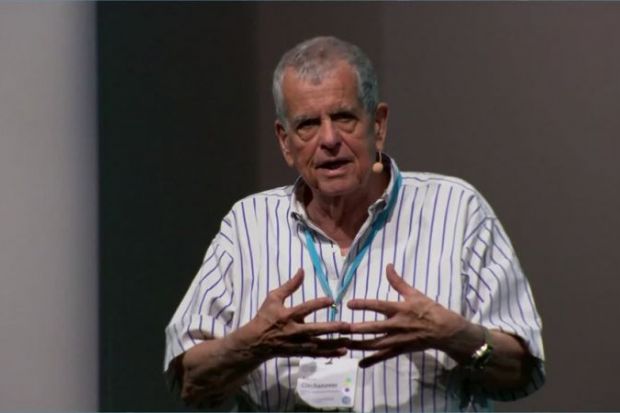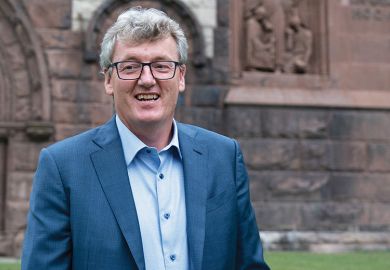Mid-career scientists should be left to “sink or swim” because research laboratories “are not kindergartens”, a Nobel prizewinning biologist has argued, although several laureates have rejected his unsupportive approach to mentoring younger researchers.
The debate follows comments by Aaron Ciechanover, the 2004 Nobel laureate in chemistry, who told an audience in Germany that leaders of top research groups could not be expected to solve all the problems of their group, and that many researchers would have to leave as a result of failure.
“Science is not a charity organisation and…if you are good, you will make it,” Professor Ciechanover, who is now based at Technion Israel Institute of Technology, told the annual Lindau Nobel Laureate Meeting.
The Israeli biologist explained he supported the tough approach of Harvey Lodish, his former collaborator at the Massachusetts Institute of Technology in the 1980s, who required his postdocs to win grants to stay in his lab.
“He had 30 postdocs in his lab and used to say, ‘They should bring in their salary and I will pay for the consumables’,” said Professor Ciechanover, adding: “It was enough for him that five or six of them were doing good papers for the lab.”
“He used to say, ‘If you swim, you swim – if you drown, you drown’,” added the Israeli doctor-turned-researcher.
On the research environment, Professor Ciechanover added: “It’s not a kindergarten – you have to have good people, but you are not a kindergarten teacher who can solve all their problems.”
He added that while he “did not let people drown” and would intervene to stop “good people breaking their heads against the wall” when experiments did not work, a tough approach that recognised not all staff would prosper, and that some may need to leave a laboratory, was often needed.
“If you are coming to a big place, a top institution, people have to be prepared for this – others cannot solve your problems,” he told Times Higher Education.
However, Sir Richard Roberts, the British biochemist who won the Nobel Prize in Physiology or Medicine in 1993, said he disagreed with the Israeli’s approach to mentorship.
“Having 30 postdocs in a lab is too much – I’ve never had more than 10 people working for me, of which two or three would be technicians. Any more than 10 and you cannot be an effective mentor,” said Sir Richard, a former Harvard University researcher who is now based at the not-for-profit private Cold Spring Harbor Laboratory in Long Island, New York.
Peter Agre, the Bloomberg distinguished professor at Johns Hopkins University’s School of Public Health, who won the Nobel Prize in Chemistry in 2003, also disagreed with Professor Ciechanover’s view.
“Only a very few people in science will make era-defining discoveries but many will have skills and interest in science who can contribute – we shouldn’t leave them behind,” said the malaria scientist, who, using the boat metaphor, added that only about 10 per cent of researchers might “swim” based on tightly defined criteria.
“I was a high school dropout, an incorrigible rebel, who only went to a very small institution – Augsburg University in Minnesota – because I was given a lot of support along the way. I would never have made it to Johns Hopkins without it,” he said.
Register to continue
Why register?
- Registration is free and only takes a moment
- Once registered, you can read 3 articles a month
- Sign up for our newsletter
Subscribe
Or subscribe for unlimited access to:
- Unlimited access to news, views, insights & reviews
- Digital editions
- Digital access to THE’s university and college rankings analysis
Already registered or a current subscriber?








